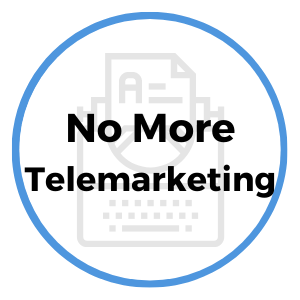- Home
- Sales Management Articles
- Leading Sales Training Programs
Leading Sales Training Programs for Maximum Results
The success of your sales training program is greatly determined by the direct involvement of the leader. Too often leaders are highly involved when first developing the training for their team or company, but then step back and allow others to conduct the actual training sessions.
This is a big mistake. By not being involved in the training you are missing out on the opportunity to connect with your new team members. Furthermore, you could be sending the signal to team members that you aren't willing to do the activities that you expect them to do - in effect creating an unhealthy distance between you and your team.
Leaders make a powerful statement when they commit to being in the room during the initial sales training program for all new employees. While it's understandable that a leader may not have the time to be involved in every single aspect of their team's continual education, being present in the initial sales training is something your team will always remember.
Your role may be limited to making an introduction of the facilitators and explaining to new team members about the company's philosophy behind the training. This is a great time to emphasize that you do not expect or want anyone selling anything to a customer that he or she does not need. Rather, you want them to take time to listen to the customer; identify their needs, then make an informed recommendation to solve the customer's needs with your products and services. This is called "needs based selling" and it's a powerful long-term strategy that businesses use to create customer and employee loyalty and retention.
During the sales training program for new employees make an effort to participate in the group sessions. Be open to sharing your own experiences, but do so in small doses. Make certain everyone in the room is having the opportunity to participate and ask questions. Help to create an environment where people feel comfortable asking questions.
"A winning effort begins with preparation."
- Joe Gibbs
Whether you are leading the training or observing, pay attention to the questions being asked by the attendees. Their questions will provide insight into their comfortable level with the material and might provide you with an opportunity to clarify expectations of the role.
By answering questions, engaging in discussion and being visible during the initial sales training program, you will get to know your new team members better and they will begin to believe in you as a trusted and credible leader.
Benefits of Sales Training Programs
Sales training raining programs cannot be a one-day event. Rather, quality training is delivered continually to promote ongoing learning and development of your sales team. As the competitive landscape changes, your team must be prepared to respond quickly to stay ahead of changing trends and opportunities.
This does not mean that your business must continually pay for ongoing sales training. After the initial sales training is provided and your team demonstrates a working knowledge of the sales skills they were taught during the training, you can develop future training sessions by utilizing the knowledge and expertise of your team.
Consider assigning responsibility for ongoing to training sessions to each of your team members. This gives them an opportunity to lead; to share their knowledge and experience; and to choose a topic they are passionate about. By capturing best practices and sharing among your team members you can help everyone to learn and grow in their sales role.
Consider these additional benefits of ongoing sales training:
- Increase Employee Retention – top performing sales people are always seeking ways to become better and increase sales production. They embrace opportunities to learn new skills, which makes for a more fulfilling work environment.
- Decreased Recruiting Costs – due to the increase in employee retention, you'll save recruiting dollars because you'll experience less turnover. With highly satisfied employees, you can create a list of prospective employees waiting to be notified when any new job opening occurs.
- Employees Remain Motivated – by staying challenged by the learning process employee will remain are more engaged; become more loyal, and stay with your company longer. The risk of team members becoming disengaged or exiting your team is much higher if you are not offering them opportunities to learn and develop their skillset.
- Increased Production and Profitability – good sales people keep getting better through consistent quality training. As sales increase, so does overall profitability. Those increased profits should go a long way toward justifying costs of your sales training program.
- Improve Accuracy of Sales Projections - with lower turnover, sales production levels will become less volatile. You can have greater confidence in your ability to project future sales levels when you know your team is not at risk of leaving.
"You get the best effort from others not by lighting a fire beneath them, but by building a fire within."
- Bob Nelson
Ways to Ensure Employee Engagement
While offering quality sales training programs with continuing learning opportunities goes a long way toward maintaining employee engagement, there are several additional thing you should consider doing to increase engagement even more. But first, check out this great video, courtesy of EmployeeEngagement.com ...
Okay, if you watched the above video you know that the number one reason employees leave their boss is due to a lack of trust. That's right, people don't leave companies, they quit their supervisor, which is why it is imperative that the leader is actively engaged in creating and maintaining a healthy work environment and helping team members to be successful.
As you think about ways to promote employee engagement consider the following:
- Build a Culture of Recognition - offering incentives, recognition programs, sales awards are all worthy initiatives, but they do cost money. To the level your business can support this is great, but not all types of recognition require a big investment. In fact, one of the most effective and meaningful ways to recognize an employee is to thank them verbally, by sending a hand written note. (You can even use our free Leadership Ecards to provide a special thank you or words of encouragement.)
- Link Employee Goals to Company Goals - make certain your employees know the direct correlation between how their success contributes to the success of the organization. This promotes a sense of being part of something bigger than themselves and that feels good, especially when a leader talks about it in front of the entire team. (e.g. Thanks to the combined efforts of this entire team, I am so proud to share with you that the company was just announced as the recipient of the JD Power's Award for Excellence in Customer Service. Let me be clear, this award would not have happened without the daily commitment to service this team delivers. This is not only the company's award, this is YOUR award. Thank you all, and great job!")
- Seek Frontline Feedback - this is an easy one that is too often missed by busy leaders. Before you roll out any new initiative, take time to let a smaller group of employees preview and provide feedback. Not only will they appreciate being asked their opinion, you may learn something you didn't anticipate. By taking this extra step, you'll gain the team's buy-in more quickly and will lessen the risk of running into an unforeseen pitfall.
As it relates to a sales training program or any other important aspect of running your business, the time, energy and focus you demonstrate as a leader is critical.
Your team will go where you take them. To the degree you are actively engaged, so will your team be engaged. Of course, the reverse is true as well, so never lose sight of the important role you play in the overall success of your team. Remember, one of the best first impressions you can make with new employees is to be involved in their initial sales training program and continue to build the relationship from there.





